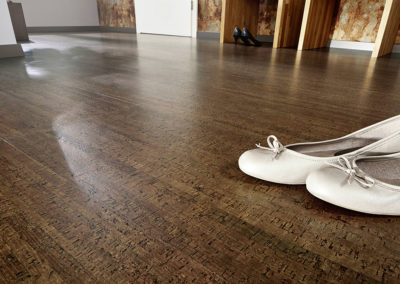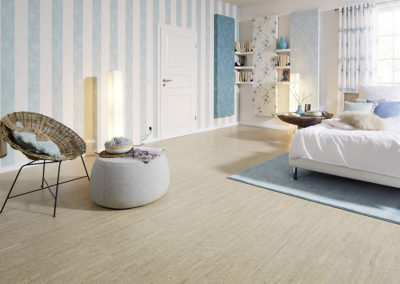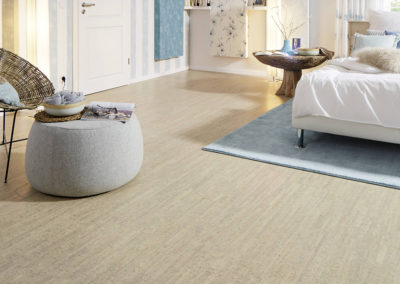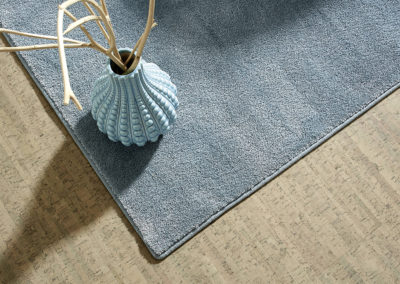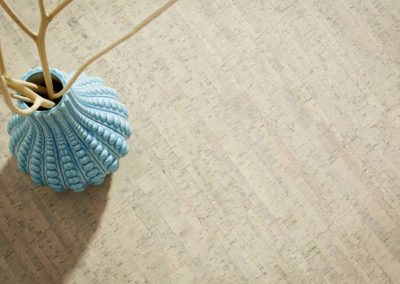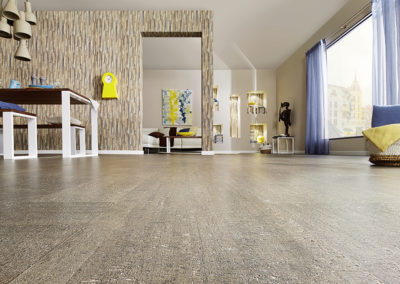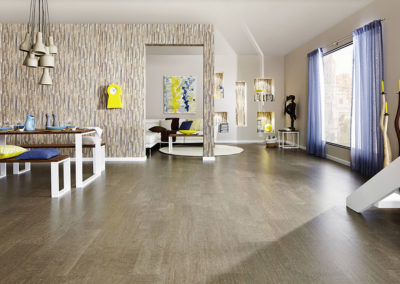Cork flooring - the eternal classic among natural floors
Cork flooring - the natural floor covering as an all-rounder
Whether thermal insulation, footfall sound absorption or cosiness factor - cork floors offer many advantages in the world of house builders.
Cork floors are available in a wide range of variations. From wood, stone and concrete looks to trendy designs, anything is possible today with modern printing techniques. Even the classic Cork floor look has not yet had its day and is often used in kitchens where there is no underfloor heating.
We can even offer installation in the bathroom. We use a special sealant and special adhesives for this. This means that Cork parquet can be used in almost any area of the home.
The cork parquet insulates downwards, absorbs impact sound and has a warm and cosy effect.
Cork is a one hundred per cent natural raw material - yet no tree has to be felled for it. Only the bark of the cork oak is peeled off to produce cork. It is therefore a sustainable alternative in the home that is also completely recyclable.
What makes cork flooring so popular again? As underfloor heating was not used everywhere in the past, floors were often perceived as cold and noisy. Thanks to its insulation and impact sound absorption, cork parquet has a warm and cosy effect. The prerequisite is full-surface bonding by a professional.
We will be happy to show you the latest trends in this eternal classic, which is a natural floor, in our showrooms in Salzburg or Zell am See. We look forward to your visit!
FAQ - Frequently asked questions about cork flooring and cork parquet
Is cork flooring waterproof?
In fact, cork is known for its waterproof properties. It is not without reason that the material has been used as a bottle stopper for decades. Nowadays, high-quality cork floors consist of several layers, including a moisture-impregnated carrier boardwhich reinforces this property.
Is cork non-slip?
Cork flooring is non-slip, elastic, sound-absorbing, hygienic and very hard-wearing.
Its slip resistance is also often used in other areas, for example in the manufacture of yoga mats.
Is cork antibacterial?
Cork has naturally antibacterial properties. It is also antimicrobial, which means that it prevents the spread of mould, termites and other insect infestations. The material is ideal for allergy sufferers and asthmatics as it is antistatic. As a result, cork does not absorb dust and the concentration of dust in the air is reduced.
.
How hard-wearing is cork flooring?
Properly utilised, cork flooring can be extremely resilient. It is very abrasion-resistant and flame-retardant. Properly sealed, it is also insensitive to moisture.
Cork flooring is easy to maintain. It is easy to mop and vacuum clean. With good care, cork floors can have a lifespan of up to 30 years.
In case something does happen and the cork floor is damaged, it can be easily repaired become.
Is cork flooring suitable for underfloor heating?
As a floor covering, cork is naturally warm to the feet and offers very good heat storage. This positive property can be further enhanced by underfloor heating. However, you must pay very close attention to the cork flooring manufacturer's instructions in order to make the right choice.
Hot water underfloor heating is best suited for cork floors, as it heats the floor slowly and gently.
Electric underfloor heating is not recommended as it causes a large increase in temperature within a very short time. This can lead to material damage and deformation of the floor.
Customer testimonials
.


